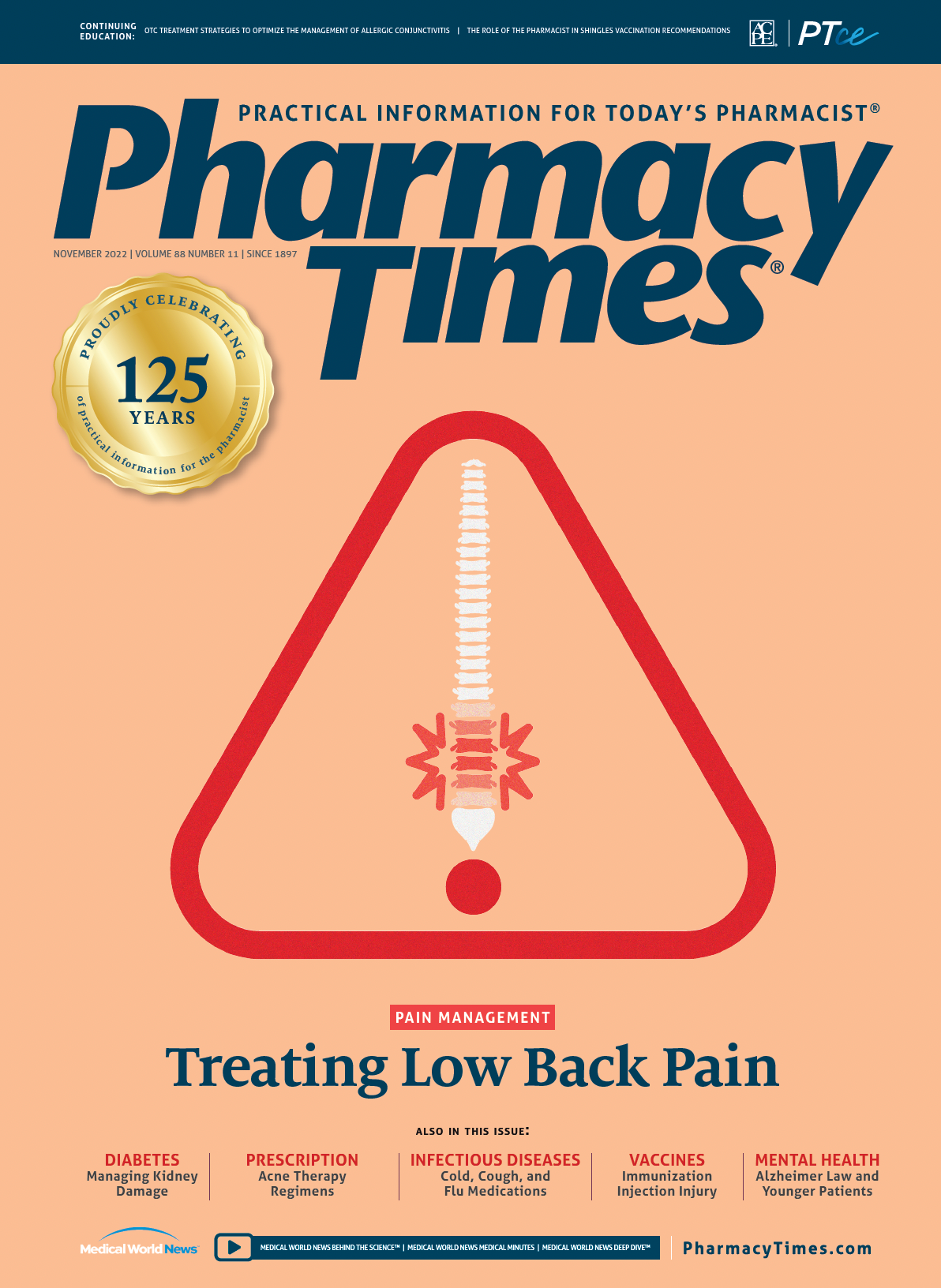Immunization Injection Injury Occurs at Pharmacy
Importance of clear and accurate documentation is emphasized in patient claim for compensation.
Issue of the Case
When a patient filed a claim for compensation associated with an immunization injection injury and the claim was denied because of an irregularity in the associated documentation at the pharmacy, will a judicial officer allow the claim to proceed?
Facts of the Case
A patient filed a claim for compensation under the federal initiative known as the National Vaccine Injury Compensation Program because of an injury to her right shoulder when she received an influenza immunization at a chain community pharmacy in a mid-Atlantic state.
Following a 17-month delay, the federal agency that coordinates the National Vaccine Injury Compensation Program ruled that she was not eligible for compensation because the “contemporaneous vaccine administration record clearly reflects that...the flu vaccine was administered into [her] left deltoid, not her right shoulder, as alleged.”
With the factual issue having been clearly identified and stated, the matter was referred to a special master for a decision: What was the fact? Was the immunization administered in the left or right shoulder? A special master is an individual appointed by a judge—in this case, a federal judge, because the issue arose under a federal statute—to oversee resolution of 1 or more aspects of a litigation matter.
“At issue is whether petitioner received the vaccination alleged as causal in her right or left arm, as it relates to whether petitioner can make the required showing that pain and reduced range of motion were limited to the shoulder in which the intramuscular vaccine was administered, as required by the Vaccine Injury Table and Qualifications and Aids to Interpretation for a [Shoulder Injury Related to Vaccine Administration],” the official explained.
The screening questionnaire and consent form completed by the patient on the day of the vaccination also had a portion filled out and signed by the pharmacist who administered the immunization. It was noted that “the pharmacist had encircled both LA and RA, indicating both left and right arms but also crossed out LA, leaving RA circled.”
The patient had submitted an affidavit to explain that at the last minute, she requested the vaccine be administered in her right arm, because she remembered she had an MRI of her left shoulder scheduled in the near future.
The Ruling
The special master concluded that a preponderance of the evidence established that the “flu vaccination alleged as causal in this case was administered to the patient in the right deltoid.”
The Court's Reasoning
In the view of the special master, the affidavit of the patient about her last-minute request to change injection sites provided “a credible explanation for why the pharmacist crossed out the circled ‘LA’ and left the circled ‘RA’ intact.” In the view of the special master, that “illuminates how that record should be construed.”
Further, “the entirety of the record preponderantly supports the conclusion that the patient more likely than not received the flu vaccine in her right arm. Only 1 record, the computer-generated printout from the records of the pharmacy chain, definitively states that she received the flu vaccination in her left arm. The remaining records are consistent in identifying the vaccinated arm as the right. And 1 record rebuts the computer-generated record: the handwritten vaccination consent form, where the pharmacist who administered the vaccine crossed out the circled ‘LA’ and left the encircled ‘RA’ untouched.”
Finally, the prevaccination medical records of the patient show that she had no history of pain or dysfunction in her right shoulder. She experienced right shoulder pain immediately after vaccination and sought treatment the next day, attributing her pain to an influenza shot administered to her right shoulder. There was no indication in the records of any other possible cause of her right shoulder pain.
Referring to prior legal case decisions, the special master noted that “where medical records are clear, consistent, and complete, they should be afforded substantial weight.” However, this rule does not always apply.
“Written records, which are themselves inconsistent, should be accorded less deference than those which are internally consistent,” according to the special master. Additionally, in a prior case, the court said “medical records may be outweighed by testimony that is given later in time that is consistent, clear, cogent, and compelling.”
This delay in the opportunity for the patient to participate in the federally funded program to protect those with vaccination-related injuries could have been avoided by removing the ambiguity, albeit slight, in the recorded documentation covering the patient encounter.
About the Author
Joseph L. Fink III, JD, DSC (Hon.), BSPharm, FAPHA is professor emeritus of pharmacy law and policy at the University of Kentucky College of Pharmacy in Lexington.

